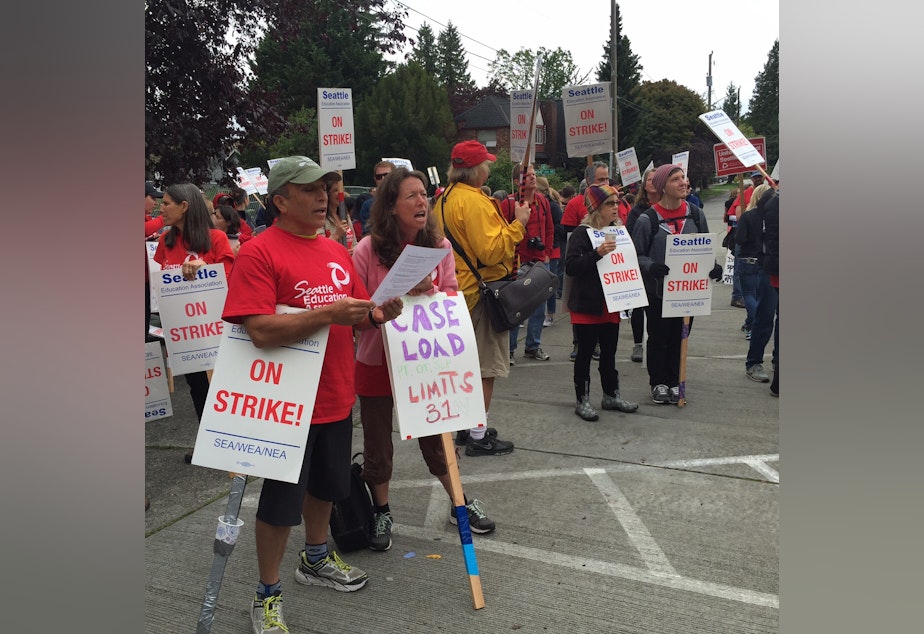Political Analyst: Seattle Teachers Winning Negotiations

A crippling recession, a subsequently ever-less affordable Seattle and events nearly 2,000 miles away set the stage for the teacher strike that has idled 53,000 children, political analyst C.R. Douglas says.
Douglas, an analyst for Q13 Fox News, told KUOW’s David Hyde that these and other factors have combined to prompt the “most comprehensive list of demands we've ever seen” from the Seattle Education Association.
There are proposals for higher pay, but also a push for a minimum level of recess and changes in how the state tests students and how teachers are evaluated.
The big factors that according to Douglas produced conditions for a strike include:
- The Great Recession: Douglas said that this is the first time since recession struck hard in 2008 that the union has felt it possible to make demands like this. “You really couldn't have done that up until now. The district was poor, the state was poor,” he said.
- The affordability crunch: The increasing inability to live in the city drove the successful push for a $15 minimum wage. “I think the same frustration is there and has boiled” up for teachers, Douglas said.
- The 2012 Chicago teachers strike: In that nine-day strike, teachers got pay raises and fought off a demand from Mayor Rahm Emmanuel to link those to merit. They also got guarantees that some laid-off teachers would have preference for rehiring. But the new contract established an evaluation system tied to standardized testing for students and extended the school day, which the district in Seattle has also proposed.
Sponsored
“It's considered kind of the gold standard in the recent labor negotiations for educators, where they asked for a lot, they got a lot after a strike,” Douglas said.
“What Chicago did and Seattle is modeling is that it wasn't just about union leadership, it was about aggressively including the rank and file of educators and broadening it out to parents to the community … Having that wide coalition is now the new way to do things.”
Then there was the uprising against standardized testing last spring, in which about half of the state’s juniors boycotted.
“I think finally what's emboldening the union was that protest they had here at Seattle over the student testing,” he said. “That gave the union a sense that, wow we had power against this district we didn't think we had ... parent power and teacher power and student power.”
Produced for the Web by Gil Aegerter.

